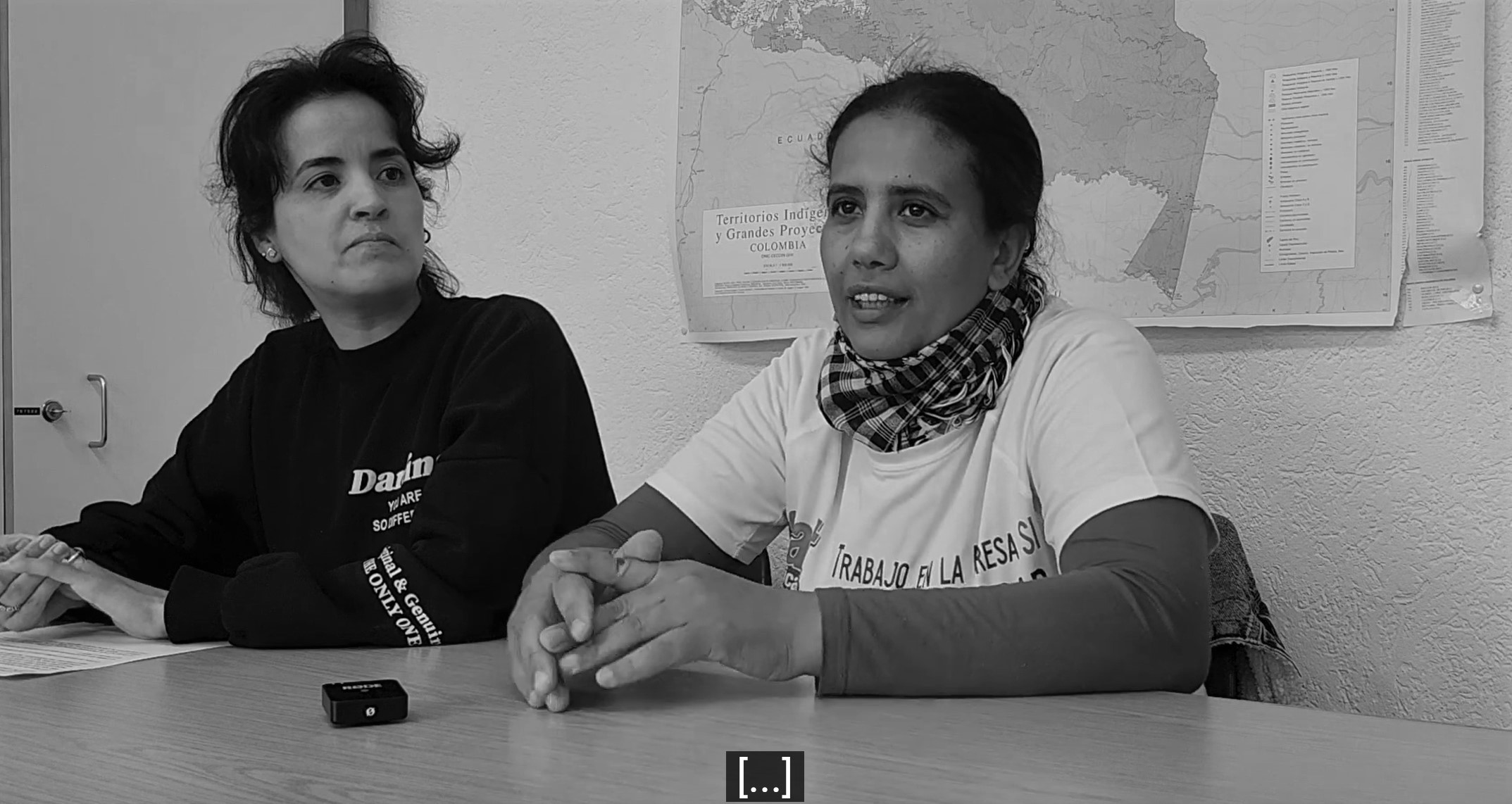
CETIM and Solifonds, which is celebrating its fortieth anniversary, invited Soumia Benelfatmi Elgarrab and Zaina Issayh to testify about the daily life of strawberry pickers in the region of Huelva, Spain.
“Swiss consumers do not know about the exploitative conditions under which the strawberries that they eat are harvested by Moroccan women” says Zaina Issayh of the Moroccan union FNSA. “We are here to talk about the working conditions of these women, to inform people and to raise awareness.”
The process starts in the country of origin of the workers. The Moroccan women who are sent to work for six months in the South are chosen by a Moroccan commission. The conditions for selection are drastic: candidates for departure must have at least one dependent child (in order to be sure that they return at the end of their stay in Europe), come from the poorest farming communities and are familiar with agricultural work.
“The Spanish operators decide who will be rehired the following year. The pickers therefore accept extremely harsh living and working conditions so as not to lose their families’ only source of income”, observes Soumia Benelfatmi Elgarrab. Before becoming a delegate to the Andalusian union SOC-SAT, she herself worked for fourteen years in the strawberry fields of Huelva.
Unsanitary housing, endless and unpaid overtime, use of pesticides and other products harmful to the health of workers (and consumers) without any protection, no medical coverage and deplorable sanitary conditions, even sexual harassment in some cases, the basic rights of these women are violated with impunity.
“The workers are illiterate, they cannot read or write and do not speak the language. So they can’t defend themselves. Imagine that instead of the six hours prescribed by Spanish law, these women sometimes work up to eleven hours nonstop in the fields when this work is very hard and causes damage to health”, explains Zaina Issayh. “This is what the SOC-SAT union deals with. We give them Spanish lessons, explain their rights to them, and help them with administrative procedures in the event of accidents or illness. We try to ensure that the maximum of six hours of daily work is respected and that the daily salary of 55 euros is paid to them in full, without illegal deductions that some bosses withhold for accommodation or water consumed during the day, etc.” adds Soumia Benelfatmi Elgarrab.
According to the testimony of the two trade unionists, Spanish law is not adequately
protecting the workers of Huelva. Moreover, corruption reigns supreme in the south of the country. However, they note a slight improvement since the arrival of Pedro Sánchez at the head of the Spanish government. “Checks are more frequent and undertaken irregularly, so that bosses do not have time to prepare. We sense that Madrid is putting pressure on this region of the country. However, there is still a long way to go before the strawberry pickers of Huelva will enjoy decent working conditions. And to begin with, our unions should be represented on the Moroccan committee for the selection of women workers, which is not the case at the moment”, says Zaina Issayh.